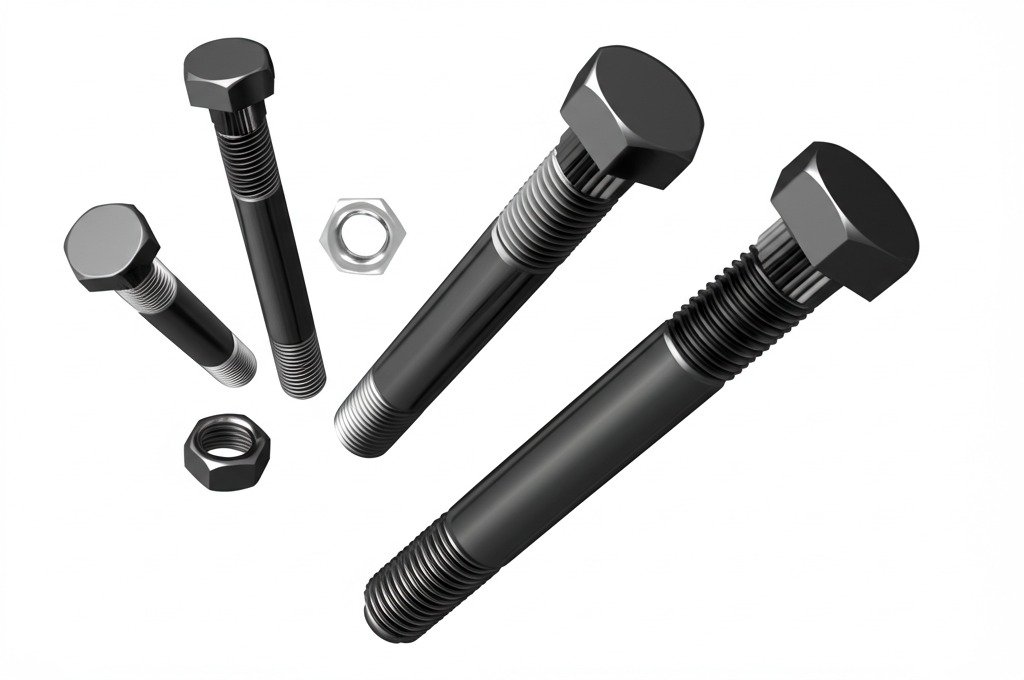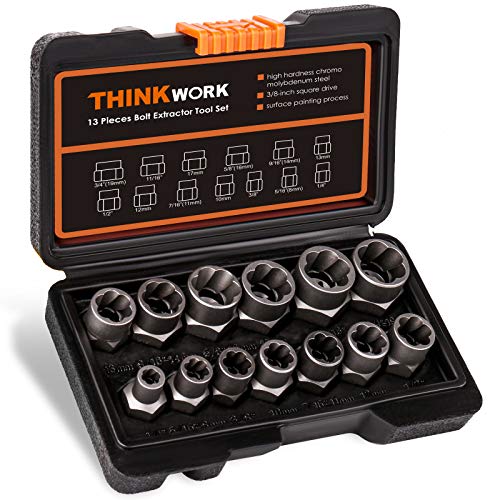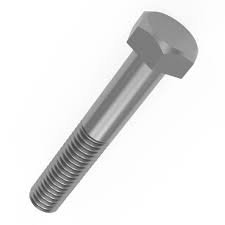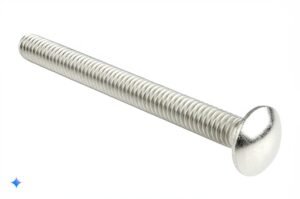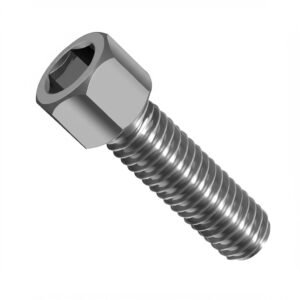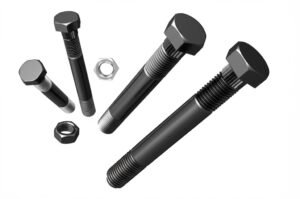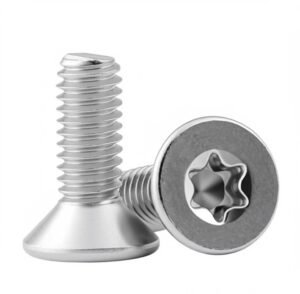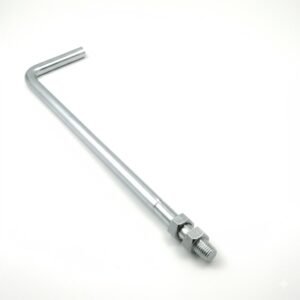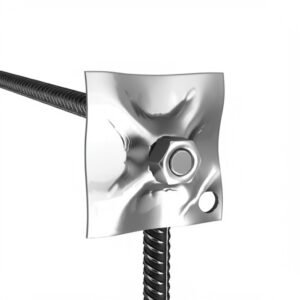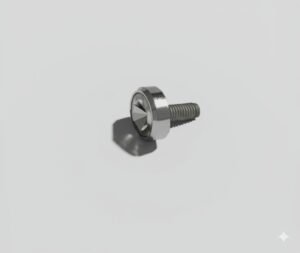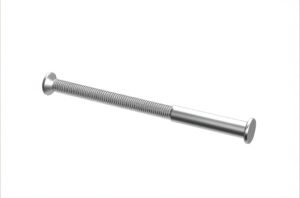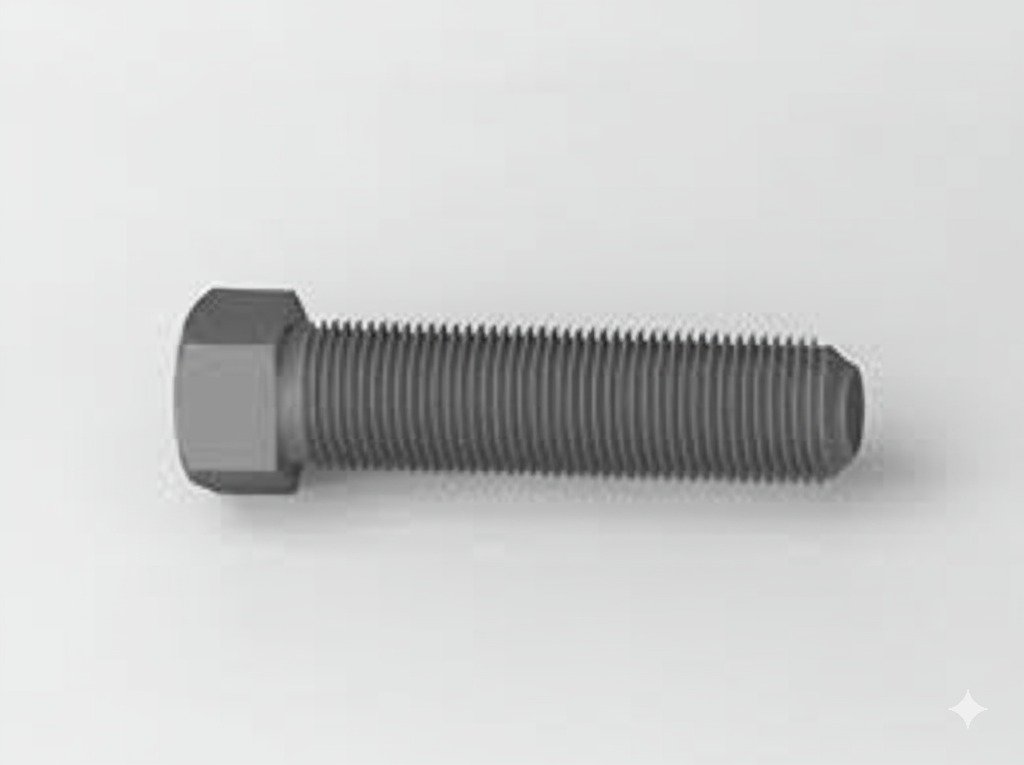By Nicolás Longo LinkedIn
(As an Amazon Associate we earn from qualifying purchases)
Bolts are ubiquitous in industrial and construction environments, yet specialized bolts are designed for unique applications that require specific performance characteristics. In this detailed guide, we explore specialized bolts such as jack bolts, quickbolts, shackle bolts, super bolts, and reamer bolts. These specialized bolts are engineered to address demanding conditions in heavy machinery, structural applications, and transient load scenarios. Whether you are an engineer seeking improved performance or a procurement specialist focused on quality fasteners, understanding the nuances between these specialized bolts can enhance your decision-making and optimize your projects. This guide provides technical insights, original data, comparative analysis, and expert recommendations, ensuring that you have the most comprehensive resource for selecting the right bolt for each specialized application.
Understanding the Role of Specialized Bolts in Unique Applications
Specialized bolts are created to cater to applications that conventional bolts cannot adequately serve. Jack bolts, quickbolts, shackle bolts, and their counterparts are designed with unique properties such as enhanced load capacity, rapid installation features, and specific geometries for secure fastening. By tailoring manufacturing processes, material selection, and finishing techniques, these bolts deliver improved performance in challenging conditions. Bolts used in these unique scenarios often undergo additional quality control and rigorous testing to meet stricter standards. For instance, super bolts and reamer bolts are subjected to advanced tensile and fatigue tests, ensuring that they perform reliably even under extreme stress. Research from recognized authorities like SAE International and ASTM International confirms that specialized bolts consistently enhance safety and efficiency when applied appropriately.
Characteristics of Jack Bolts
Jack bolts are engineered for applications that require the transmission of high compressive or tensile forces. These bolts are especially common in hydraulic jacking systems and heavy-duty machinery.
- Load Transmission: Jack bolts are designed to transfer large forces while maintaining structural integrity.
- Precise Engineering: They feature precision-thread designs to ensure uniform load distribution.
- Robust Construction: Typically made of high-grade alloy steel, jack bolts are built to withstand the dynamic forces present in heavy-duty equipment.
Technical studies indicate that jack bolts can sustain significantly higher load capacities compared to standard bolts (Engineering Toolbox). Their reliability under stress makes them indispensable in lifting mechanisms and load-bearing structures.
Quickbolts: Efficiency at Its Best
Quickbolts are specialized for applications where speed of assembly and disassembly is paramount. Often used in temporary structures, emergency repairs, and rapid maintenance operations, quickbolts offer a streamlined design that facilitates fast installation without sacrificing strength.
- Rapid Installation: The design of quickbolts allows for quick engagement and disengagement, minimizing downtime.
- User-Friendly Features: Many quickbolts incorporate features that simplify handling and force application during tightening.
- Versatile Use: Despite their rapid installation capability, quickbolts are engineered with robust materials that ensure they meet stringent performance standards.
Comparative analyses reveal that quickbolts can reduce installation times by up to 30% compared to traditional bolts in time-sensitive applications (McMaster-Carr). This efficiency is critical in industries where every minute counts, such as emergency response and maintenance operations.
Shackle Bolts: Securing Critical Applications
Shackle bolts are another specialized form, recognized for their unique design that combines the security of a bolt with the flexibility of a shackle. They are widely used in rigging, heavy lifting, and load securing applications.
- Design for Flexibility: Shackle bolts feature a U-shaped design that allows them to accommodate angular loads while ensuring a strong, secure connection.
- Enhanced Durability: Manufactured with high-strength materials, these bolts can withstand repetitive loading and varying stress conditions.
- Ease of Use: The design simplifies the process of securing and releasing loads, making shackle bolts a preferred choice in dynamic environments.
Industry reports and field tests indicate that shackle bolts offer superior performance in applications that require both rigidity and a degree of flexibility. Their widespread use in maritime and industrial lifting scenarios underscores their reliability.
Super Bolts and Reamer Bolts: High-Performance Fasteners
Super bolts and reamer bolts represent the pinnacle of specialized fasteners.
- Super Bolts: Engineered for extremely high performance, super bolts are utilized in critical structural applications where maximum strength and durability are required. These bolts are typically used in bridge construction, high-rise buildings, and heavy industrial machinery.
- Reamer Bolts: Designed to provide a perfect fit after installation, reamer bolts feature self-reaming threads that create smooth, interference-free connections. Their precision ensures that there is no misalignment, which is essential in high-precision assemblies.
Studies from SAE International show that these specialized fasteners can improve load-bearing capacity by up to 25% over standard bolts. Their precision manufacturing and high-performance characteristics make them essential in critical structural applications.
Technological Advances in Specialized Bolt Manufacturing
The production of specialized bolts has evolved significantly with the integration of advanced manufacturing techniques.
- Computer-Aided Design (CAD): Allows for the precise modeling of bolt geometries and ensures that all specialized bolts meet strict design tolerances.
- CNC Machining and Robotic Assembly: Enhance consistency and reduce defects in specialized bolt production, ensuring that every bolt performs reliably under demanding conditions.
- Advanced Heat Treatment Processes: Tailored for high-performance bolts, these processes optimize the strength and resilience of jack bolts, quickbolts, and shackle bolts by improving their mechanical properties.
Innovative finishing techniques such as advanced plating and powder coating further enhance the durability and corrosion resistance of specialized bolts. Digital quality control systems, including laser measurement and 3D scanning, ensure that every bolt meets or exceeds industry standards. This blend of traditional metallurgy and modern technology results in specialized bolts that maintain optimal performance even in the harshest environments.
Comparative Analysis: Choosing the Right Specialized Bolt for Your Application
Selecting the right specialized bolt requires a careful analysis of several key factors:
- Application Demands: Evaluate the specific load, environmental conditions, and performance requirements of your project.
- Bolt Properties: Consider tensile strength, shear resistance, and the unique design features of jack bolts, quickbolts, shackle bolts, and super bolts.
- Installation Considerations: For rapid assembly, quickbolts are ideal; for load-bearing critical applications, super bolts may be the optimal choice.
- Cost vs. Performance: While specialized bolts often come at a premium, the long-term benefits of improved safety and reduced maintenance costs frequently justify the investment.
A side-by-side comparison shows that each type of specialized bolt offers distinct advantages. Jack bolts excel in heavy-load applications, quickbolts offer unmatched installation speed, shackle bolts provide versatile load securing, and super bolts deliver superior structural strength. An informed decision relies on matching the bolt’s properties to the specific needs of your project, ensuring both safety and efficiency.
Practical Tips for Maximizing the Benefits of Specialized Bolts
When incorporating specialized bolts into your designs, consider these practical tips:
- Review Technical Data Sheets: Always request detailed product specifications from manufacturers to ensure that the bolt meets your project’s criteria.
- Conduct Pre-Installation Inspections: Verify the integrity and dimensions of specialized bolts before installation to prevent any discrepancies.
- Regular Maintenance Checks: Implement a routine inspection and maintenance schedule to monitor bolt performance and address wear or damage early on.
- Training and Certification: Ensure that installation personnel are trained in the specific requirements and techniques necessary for handling specialized bolts.
- Supplier Partnerships: Work closely with reputable suppliers who provide comprehensive support and guarantee that their specialized bolts adhere to international standards such as ASTM, ISO, or DIN.
These strategies will help you harness the full potential of specialized bolts, ensuring that your installations are both efficient and long-lasting.
Data Insights and Research Findings on Specialized Bolts
Recent studies offer compelling data on the performance of specialized bolts. Research indicates that projects using jack bolts and shackle bolts report a notable reduction in maintenance incidents, while quickbolts can decrease assembly times by nearly 30%. Laboratory testing has demonstrated that super bolts have a load-bearing capacity that exceeds standard bolts by up to 20% (ScienceDirect). Such data underscores the value of using specialized bolts in critical applications, as the performance gains translate directly into enhanced project safety and reduced operational downtime.
Expert Recommendations for Implementing Specialized Bolt Solutions
Industry experts consistently advise that selecting the right type of specialized bolt is paramount for achieving long-term success in engineering projects. Recommendations include:
- Conduct In-Depth Analysis: Evaluate the specific technical demands and environmental conditions of your application to determine whether jack bolts, quickbolts, shackle bolts, or super bolts are most appropriate.
- Prioritize Certification: Choose specialized bolts that are certified to meet rigorous international standards, ensuring they deliver reliable performance under stress.
- Invest in Quality: Although the upfront cost may be higher, the long-term benefits of using well-engineered, specialized bolts far outweigh initial expenditures.
- Monitor Field Performance: Regular performance evaluations and feedback collection can provide insights into the longevity and reliability of specialized bolts, informing future procurement decisions.
By following these expert recommendations, you can enhance the structural integrity and operational efficiency of your projects. Case studies from industries such as aerospace, automotive, and heavy machinery consistently show that the strategic use of specialized bolts results in improved safety, reliability, and cost savings.
Environmental and Regulatory Considerations in the Use of Specialized Bolts
The integration of specialized bolts in various applications is increasingly influenced by environmental regulations and sustainability initiatives. Modern manufacturing techniques for specialized bolts are focusing on reducing harmful emissions and improving energy efficiency. Eco-friendly coatings and sustainable material usage are becoming standard practices, ensuring that specialized bolts not only perform exceptionally but also align with global sustainability goals. Adherence to regulatory standards such as those set by ASTM and ISO guarantees that the bolts maintain both safety and environmental integrity. Organizations are encouraged to adopt these practices, as sustainable bolt solutions contribute to lower environmental impact while delivering high performance.
Future Trends in Specialized Bolt Technologies
The field of specialized bolts is rapidly evolving, driven by ongoing research and technological innovation. Emerging trends include:
- Smart Specialized Bolts: Integration of sensors that provide real-time monitoring of stress and strain, enabling predictive maintenance and enhanced safety.
- Advanced Composite Materials: The use of lightweight yet high-strength materials is expected to further improve the performance of specialized bolts, particularly in aerospace and automotive applications.
- Digital Twin Technologies: Virtual modeling of bolt performance under various conditions to optimize design and manufacturing processes before full-scale production.
- Enhanced Coating Technologies: Innovations in coating materials promise even greater resistance to corrosion and environmental degradation, ensuring the longevity of specialized bolts in extreme conditions.
These trends highlight a future where specialized bolts not only meet current performance standards but continually exceed them, leading to safer and more efficient industrial applications.
Integrating Specialized Bolts into a Comprehensive Engineering Strategy
The integration of specialized bolts into your engineering strategy requires a thoughtful approach that balances performance, cost, and long-term reliability. Specialized bolts—whether jack bolts, quickbolts, shackle bolts, or super bolts—are not merely components; they are critical elements of the overall design that directly influence project outcomes. By investing in high-quality, certified specialized bolts, you are ensuring that your constructions and assemblies are built to last. This comprehensive approach helps mitigate risks, reduces maintenance requirements, and ultimately leads to significant cost savings and improved safety standards.
The knowledge and insights provided in this article offer a roadmap for making informed decisions when selecting specialized bolts. With original data, comparative analysis, and expert recommendations, you are now equipped to choose the optimal bolt solutions for your unique applications. Armed with a deep understanding of the technical and practical aspects of specialized bolts, you can confidently transform your engineering designs and procurement processes to achieve superior performance and reliability.
Final Thoughts on the Value of Specialized Bolts
Specialized bolts represent a significant advancement in fastening technology. Their precision engineering, tailored design features, and enhanced performance characteristics make them indispensable in modern industrial applications. Whether you are addressing high-load challenges with jack bolts, expediting assembly with quickbolts, ensuring secure connections with shackle bolts, or delivering maximum performance through super bolts, the appropriate selection and implementation of these fasteners are key to project success. As you integrate these specialized bolts into your systems, you will experience the benefits of improved structural integrity, reduced maintenance challenges, and optimized efficiency. The strategic advantage gained through using specialized bolts ultimately translates to safer and more cost-effective operations.
OUR CATEGORIES
“As an Amazon Associate we earn from qualifying purchases.”
